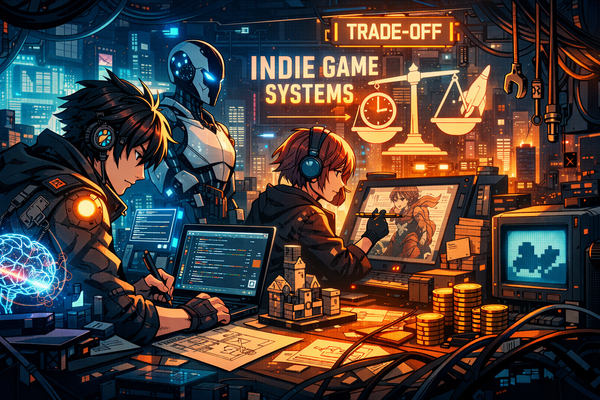Essential truths for aspiring game producers
Becoming a top-tier game producer is a challenging journey that requires more than just technical skills. It demands a deep understanding of the gaming industry, relentless dedication, and a willingness to embrace some important realities. Here are the key truths you need to accept to reach the pinnacle of game production success, grouped by their themes.
1. Vision and leadership
Have a clear vision A clear and compelling vision is vital. Without it, your team may lose direction and focus. Communicate your vision effectively and ensure everyone is aligned towards common goals.
Passion for games is essential To create games that resonate with players, you need to be a gamer yourself. Understanding the nuances of gameplay, what excites players, and what frustrates them comes from firsthand experience. Your passion for gaming will drive your creativity and perseverance.
No decision is perfect Every decision in game development involves trade-offs and uncertainties. Embrace the fact that no choice is flawless. Make informed decisions, accept the risks, and be prepared to adapt as new challenges arise.
Start small, dream big Prove your concepts on a smaller scale before scaling up. If you can’t make a small game successful, adding more resources won’t solve fundamental issues. Start with a manageable project and build from there.
2. Team dynamics and management
Own your mistakes Mistakes are inevitable in game development. Acknowledging and learning from them builds trust within your team and fosters a culture of transparency. Avoiding blame and focusing on solutions will help your team grow stronger and more cohesive.
Your team defines your success Surround yourself with talented and passionate individuals. A great team can elevate your game and bring diverse perspectives that enhance the final product. Invest in your team’s growth and well-being.
Prioritize health Game development can be demanding, but neglecting your health leads to burnout and diminished creativity. Prioritize well-being for yourself and your team to maintain productivity and sustain long-term success.
Manage time effectively Time management is critical. Missed deadlines and poor planning can derail even the best projects. Set realistic timelines, prioritize tasks, and maintain a disciplined schedule to ensure smooth progress.
3. Player engagement and community
Respect your players Players are the lifeblood of your game. Treat them with respect and listen to their feedback. Building a loyal community involves valuing their opinions and making them feel appreciated.
Engage with the player community Interacting with your player community provides valuable insights and fosters loyalty. Ignoring their feedback can make you out of touch with their needs and preferences. Stay connected and responsive.
Players are perceptive Players can see through poor design choices, technical issues, and exploitative practices. Don’t underestimate their intelligence. Be honest and strive for quality to earn their trust and loyalty.
Fun is paramount No amount of features or monetization strategies can save a game that isn’t fun. Ensure that your game is enjoyable and engaging at its core, as this is what will keep players coming back.
4. Development and execution
Iteration is key Games rarely start off perfect. Continuous iteration, feedback, and improvements are essential to refine your game. Be patient and persistent, as each iteration brings you closer to greatness.
Execution matters more than ideas Great ideas are plentiful, but what sets successful game producers apart is their ability to execute those ideas effectively. Focus on turning concepts into polished, playable experiences.
There’s no secret formula for success Success in gaming doesn’t come from a hidden formula or a single breakthrough idea. It’s the result of hard work, iteration, and learning from failures. Chasing mythical shortcuts often leads to disappointment.
5. Business and market realities
Profitability is crucial A game’s success is ultimately measured by its profitability. Downloads and initial revenue are meaningless if your game doesn’t generate sustainable profit. Focus on creating a viable business model.
Good games vs. successful games A well-designed game might not always be financially successful. Market dynamics, timing, and competition play significant roles. Accept that not every good game will be a hit, and learn from each experience.
Balance innovation with best practices Innovation is essential, but it must be balanced with proven best practices. Too much deviation can alienate players, while too little can make your game forgettable. Find the right mix to keep players engaged and intrigued.
Leverage analytics and metrics Data-driven decisions are crucial in modern game development. Analytics provide insights into player behavior, preferences, and areas needing improvement. Use this data to refine your game and make informed decisions.
Commit to continuous learning The gaming industry evolves rapidly. Stay updated on new trends, technologies, and player preferences. Continuous learning keeps you relevant and competitive in a constantly changing landscape.
Embracing these truths will not only improve your game production skills but also prepare you for the relentless challenges of the gaming industry. Strive for excellence, remain adaptable, and keep your passion for gaming at the forefront of your journey.




